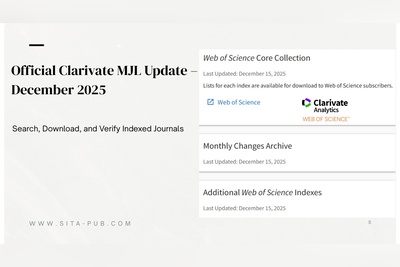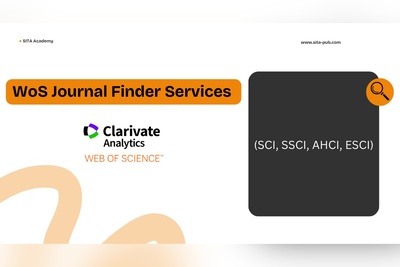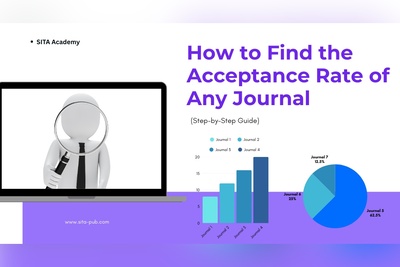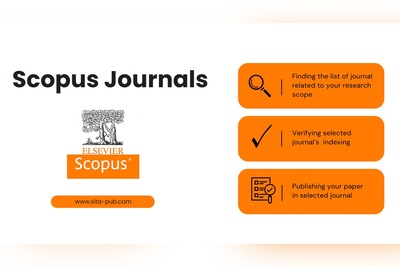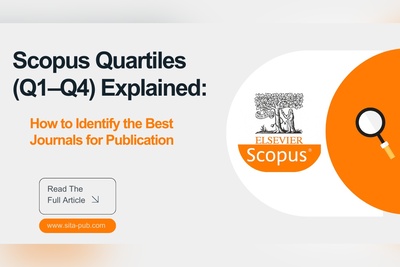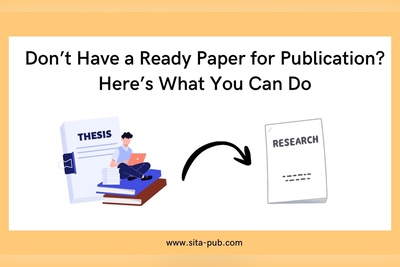Find Affordable Journals with Fast-Track Publishing
Looking for an affordable journal indexed in Scopus, PubMed, or Web of Science that offers fast-track publishing? Learn how to find reputable journals with rapid peer review and get your research published in just weeks — ideal for time-sensitive studies and academic deadlines.
- Visit the Journal’s Website
- Check for Fast-Track or Accelerated Review Mentions
- Review APC ( Article Processing Charges ) or Extra Fees
- Contact the Editorial Office
- Consult Publisher Platforms
- Check Journal Indexing
- Comply Strictly with Journal Guidelines
- Choose the Appropriate Journal
- Consider Open Access Options
- Prepare a High-Quality Manuscript
- Use Professional Editing Services
- Respond Promptly to Reviewer Comments
- Ensure Ethical Compliance
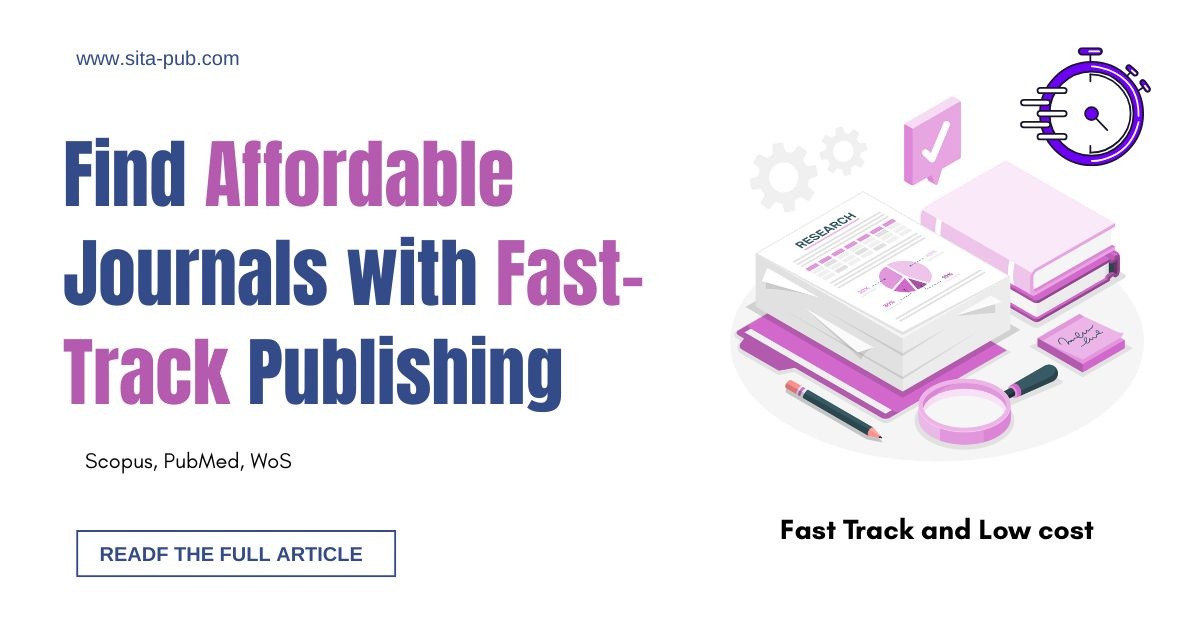
What Is Fast-Track Publishing?
Fast-track publishing is an expedited process offered by many academic journals that accelerates the review and publication timeline for submitted manuscripts. Unlike the traditional publication route, which can take several months or even over a year, fast-track options aim to deliver decisions and publish accepted papers much quicker—often within a few weeks.
This option is particularly valuable for researchers with time-sensitive findings, those applying for grants or promotions, or scholars looking to get their work out into the scientific community swiftly.

Fields That Commonly Offer Fast Publishing Option
Medical and Health Sciences: Urgent research and public health studies often require rapid dissemination.
Engineering and Technology: Fast-track for cutting-edge innovations and developments.
Environmental Science: Timely publication for research impacting policy and conservation.
Life Sciences, Chemistry, and Physics: Some high-impact journals offer fast-track options.
Computer Science: Rapid sharing of novel algorithms and technologies.
Social Sciences and Humanities: Fast-track is less common but gradually increasing.
Tip: Always check the specific journal’s website to confirm fast-track availability in your field.
The Fast-Track Publication Process vs. Normal Publication
Normal Publication Process
1. Submission: Authors submit their manuscript via the journal’s online system.
2. Initial Screening: Editors perform a quick check for fit and quality.
Peer Review: Manuscript is sent to reviewers (usually 2-3), which can take 4-8 weeks or more.
4. Revision(s): Authors revise according to feedback; this may add weeks or months.
5. Acceptance: Once reviewers and editors are satisfied, the paper is accepted.
6. Production: Copyediting, formatting, proof corrections, and final publishing, which can take additional weeks.
Total timeline: 4 to 12 months on average.
Fast-Track Publication Process
1. Submission with Fast-Track Request: Authors indicate interest in fast-track during submission.
2. Prioritized Screening and Review: Editors assign reviewers who agree to faster turnaround, often within 1-2 weeks.
3. Accelerated Revision and Decision: Authors receive feedback quickly and revisions are processed rapidly.
4. Expedited Production: Accepted manuscripts move swiftly through copyediting and typesetting.
Total timeline: 2 to 6 weeks typically.
Summarized Table
Aspect | Fast-Track Publishing | Normal Publishing |
Review Speed | Accelerated peer review, typically weeks to a few months | Standard peer review, often several months to over a year |
Publication Time | Often published within 1-3 months after acceptance | Usually takes 6 months or more after acceptance |
Fees | Additional fast-track or expedited fees apply | Standard publishing fees, usually lower or none |
Availability | Offered by select journals, mostly in urgent fields | Widely available in most journals |
Acceptance Process | Same rigorous peer review but faster turnaround | Standard peer review process |
Ideal For | Time-sensitive research, urgent findings | Regular research without immediate urgency |
Quality of Review | Same quality, just faster handling | Standard thorough review process |
Open Access Options | Often available, sometimes bundled with fast-track | Usually available but with standard timelines |
How Fast Can You Publish with Fast-Track?
Fast-track options can shorten publication timelines from months down to weeks. Some journals claim turnaround times as fast as 7 to 14 days for peer review and decision, with final publication often within 4 to 6 weeks after submission.
However, the exact speed depends on:
Journal policies
Reviewer availability
Author responsiveness
Complexity of revisions
Do Reputable Journals in Scopus, Web of Science, and PubMed Offer Fast-Track Options?
Yes, many reputable journals indexed in major databases like Scopus, Web of Science (WoS), and PubMed do offer fast-track or accelerated publishing options. These include both traditional subscription and Open Access journals.
Scopus-indexed journals often provide clear fast-track services, especially in medicine and engineering fields.
Web of Science journals (including SCI, SSCI) are increasingly offering fast-track due to demand for rapid dissemination.
PubMed Central journals, especially those connected with NIH-funded research, sometimes provide expedited options for urgent clinical findings.
However, not all journals offer this, and the availability varies by publisher and discipline.
Open Access vs. Fast-Track: Are They Mutually Exclusive?
Open Access (OA) publishing and Fast-Track publishing are two different but complementary concepts in academic publishing.
Open Access means your research is freely and immediately available to anyone, without subscription barriers. This increases visibility and allows more people to read and cite your work.
Fast-Track publishing, however, speeds up the peer review and publication process, so your paper gets published much faster than usual.
Many reputable journals offer both options together. For example, some Open Access journals provide a Fast-Track service, letting authors publish quickly while keeping their article freely accessible. Likewise, some subscription-based journals offer Fast-Track options but may keep content behind paywalls.
Choosing between them depends on your goals:
If you need your research published urgently (e.g., timely discoveries), Fast-Track can be very helpful.
If your priority is maximum reach and accessibility, Open Access is the way to go.
In fact, you don’t have to pick one or the other — combining Open Access with Fast-Track publishing can give you both speed and broad accessibility.
How to Find Out if a Journal Offers Fast-Track Publishing: Step-by-Step Guide
1. Visit the Journal’s Website
Start by exploring the journal’s official website. Look for sections like “For Authors,” “Submission Guidelines,” or “Publishing Options.” These areas usually contain detailed information about submission and publishing services.
2.Check for Fast-Track or Accelerated Review Mentions
Many journals clearly advertise if they offer a fast-track or accelerated review service. Keep an eye out for these terms, as they indicate quicker publication options.
3. Review APC (Article Processing Charges) or Extra Fees
Fast-track options often come with additional charges. Look for information on Article Processing Charges (APCs) or any extra fees associated with speeding up the review and publication process.
4.Contact the Editorial Office
If the website does not clearly mention a fast-track option, reach out directly by emailing the journal’s editorial office or support team. They can confirm whether fast-track services are available.
5.Consult Publisher Platforms
Check large publishing houses like Elsevier, Springer, or Wiley. These publishers often maintain lists or dedicated pages of journals offering fast-track publication options.
6. Check Journal Indexing
Ensure the journal is indexed in reputable databases such as Scopus, Web of Science (WoS), or PubMed. This helps guarantee the journal’s quality alongside the fast-track service.
Technical Steps to Accelerate Your Publication Process
To benefit fully from fast-track publishing, authors should take specific steps to avoid delays and improve their chances of quick acceptance.
Comply Strictly with Journal Guidelines
Carefully follow the journal’s formatting rules, referencing style, and word limits. Adhering to these guidelines helps prevent desk rejection or delays caused by necessary corrections.
Choose the Appropriate Journal
Select a journal that fits your research topic and scope. Ideally, pick one that explicitly offers fast-track options to speed up the review and publication process.
Consider Open Access Options
Open Access journals often provide more flexible and faster workflows, which can complement fast-track services.
Prepare a High-Quality Manuscript
Write clearly, use correct grammar, and organize your manuscript logically. A well-prepared paper reduces the need for extensive revisions.
Use Professional Editing Services
Non-native English speakers, in particular, can benefit from professional editing to polish language and style, which helps avoid multiple rounds of revision.
Respond Promptly to Reviewer Comments
Quickly and thoroughly addressing reviewer feedback accelerates the acceptance process.
Ensure Ethical Compliance
Submit all necessary ethical documents—such as conflict of interest disclosures and ethics approval forms—on time to prevent administrative delays.
By following these steps, authors can significantly smooth the fast-track publication journey.
What Are the Costs of Fast-Track Publishing? Is It Affordable?
Fast-track publishing typically requires an additional fee beyond the standard Article Processing Charges (APCs). The exact cost varies based on factors like the journal’s reputation, publisher, research discipline, and whether it operates on an Open Access or subscription model.
Fast-track fees typically range from $300 to over $2,000.
Standard APCs for Open Access journals generally range from $500 to $3,500.
Some journals offer discounts or fee waivers for authors from low-income countries, making it more accessible.
For researchers with grant funding or institutional support, fast-track fees can be manageable as part of their budget. However, independent authors or those with limited resources should carefully consider whether the faster publication is worth the additional cost. Exploring fee waivers or discounts is a smart step before deciding to pay for fast-track publishing.

Fast-track publishing offers a valuable option for researchers aiming to disseminate their work rapidly. While costs and availability vary, many reputable journals indexed in Scopus, Web of Science, and PubMed provide this service—especially in fast-moving fields like medicine and technology.
By carefully selecting journals, following submission guidelines, and preparing high-quality manuscripts, authors can leverage fast-track options to share their findings faster without sacrificing quality or credibility.
Need Help Finding the Right Journal?
At SITA Academy, we understand how crucial it is to publish your research quickly — and affordably. If you're looking for journals that offer fast-track publishing with reasonable fees and are indexed in Scopus, Web of Science, or PubMed, we’re here to assist.
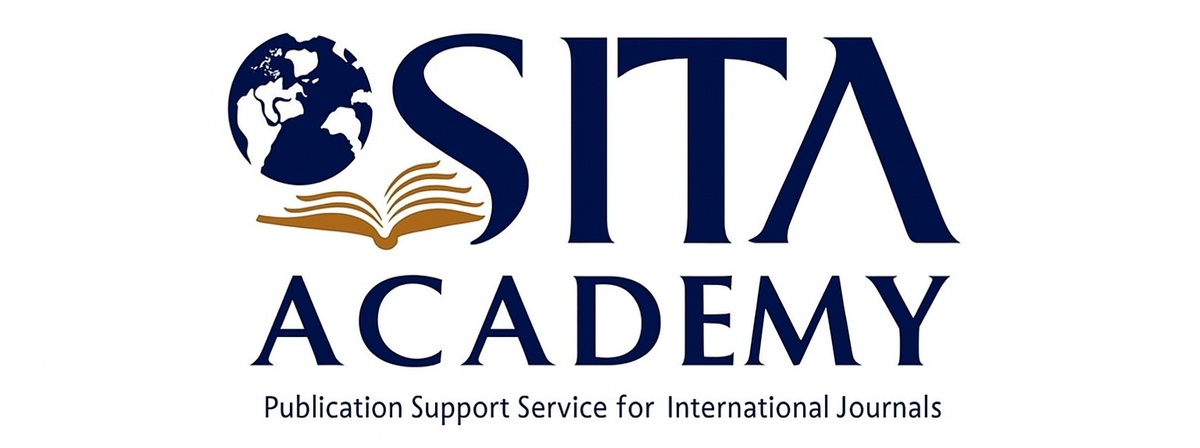
📩 Simply send us your research scope or the abstract of your paper, and our expert team will:
✅ Identify journals that match your topic
✅ Ensure indexing in Scopus, WoS, or PubMed
✅ Filter options based on publication speed and budget
✅ Provide details on fees, processing time, and Open Access options
🎓 SITA Academy is an international research publication center that specializes in journal indexing, scope alignment, and affordable publishing pathways.
You can contact our Journal Selection Assistance Team via WhatsApp, Telegram, Email, or Facebook — the links are provided below.
Verified Contact Channels
If you have any questions, inquiries, or would like to learn more about our services, please don't hesitate to reach out to us. Our dedicated team is ready to assist you.







